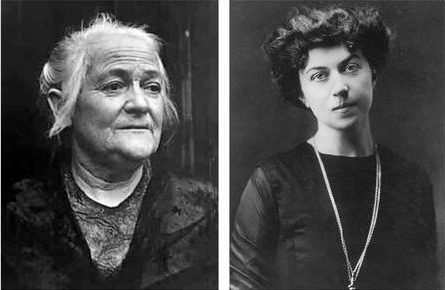5.3.3 Socialist Feminism
Étienne Schmitt
At the end of the 19th century, many women and men contributed to the development of socialism and linked the domination of capitalism to patriarchy, foreshadowing intersectionality. While it is necessary to underline the strong misogyny of certain socialist thinkers, August Bebel in his book Woman and Socialism (1879/1910) theorized the oppression of women from a socialist perspective. Several activists such as Claire Zetkin, the founder of Socialist International Women in 1907, and Alexandra Kollontai, a free-love theorist and defender of free sexuality (Kollontai, 1932), linked feminist struggles to proletarian struggles. Despite these efforts, feminist struggles were long relegated to the background by the socialist ideology.

Socialist feminism underwent a revival in the 1980s, most notably thanks to the work of feminist intellectuals such as Marlene Dixon (1978). Through their militancy, the socialist and communist parties gradually integrated feminism into their platforms, making the right to abortion, the parity of political bodies and equality between men and women demands assumed by all socialist currents.
Media Attributions
- Claire Zetkin and Alexandra Kollontai © unknown adapted by Étienne Schmitt is licensed under a CC BY-NC (Attribution NonCommercial) license

